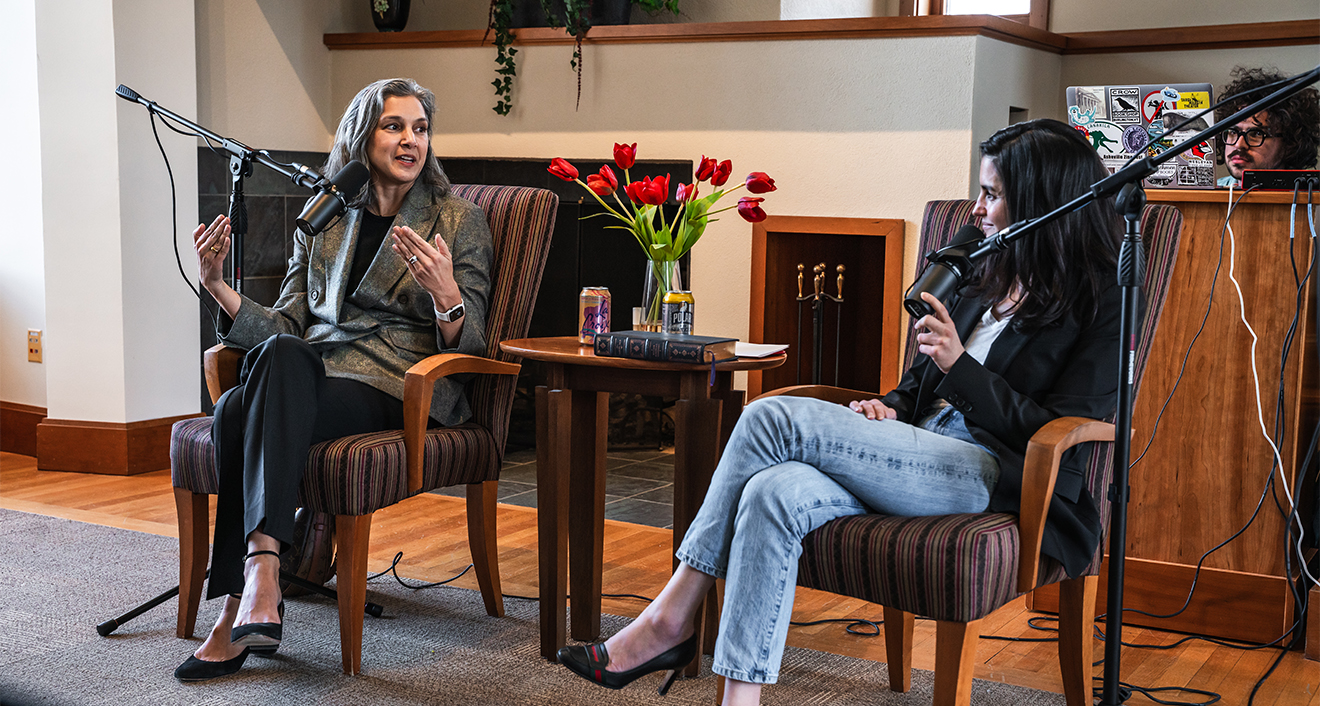
Faculty Expert’s Insights on Democracy in South Korea, and the U.S.

On December 2, 2024, Associate Professor of East Asian Studies and of Government Joan Cho was presenting new research about South Korea’s democracy at Harvard University with a colleague. Cho, whose scholarship focuses on authoritarianism, democracy, and social movements in South Korea, was discussing partisan competition and polarization in the East Asian democracies. Members of the audience were skeptical that the competition she described could destabilize the country’s democracy.
The next day, then-president of South Korea, Yoon Suk Yeol, declared martial law.
Within days, Cho and her co-author Aram Hur drafted a paper, “The Perils of South Korean Democracy,” which was published in the Journal of Democracy. In the following interview (edited for length), Cho explains the history of political polarization that led the U.S. ally to this perilous moment.
Your paper states that the current turmoil is a “symptom of long-standing nationalist polarization” and that the political parties in South Korea have very different visions of the nation. What are those visions?
Cho: In South Korea, because of the Korean War, the division, and the ongoing security dilemma with North Korea, there is the National Security Law that prohibits South Koreans from saying anything that is pro-North Korean or pro-communist. For that reason, the left party, which is currently the Democratic Party, cannot be too left. [Yet] the party’s longstanding vision—with its roots in the democracy movement known as the minjung (people’s) movement—has been achieving reunification with North Korea. Their vision is “One Korea”—an ethnonationalist, independent, and reunified Korea.
The right party has roots back to right-wing, authoritarian regimes. After the North and South were divided, military dictators ruled the South until the late 1980s, and anti-communism came to define the meaning of being “right” or conservative. For the right party, the United States has long been an important ally not only for security reasons, but also as the leader of the liberal international order they aspired to join. Therefore, North Korea is seen as a threat to both national security and the right’s vision of “Global Korea” that centers the country in the US-led liberal international order.
Your paper also stated that this polarization damages the essence of democratic competition. How?
Cho: Usually the left and right have been defined by how you think about the role of government--big government versus small government. A lot of that has to do with welfare policies and minority rights.
South Korean parties actually don’t align on the conventional left-right ideological spectrum. Instead, they're polarized on the nationalist axis based on their competing nationalist visions. The ultimate goal becomes state capture, not just policy improvement or representation. Political opponents are viewed not as a valid competitor but as an existential threat to the nation. We see this language of the people on the right calling the people on the left as jongbuk (pro-North) or communists.
If you think of your political competitor [and the] people who support the other political party as an existential threat, it is more acceptable to think that democratic norms could be violated to win at all costs. That's how martial law was declared when there was no actual war from North Korea. The conservative president framed the liberal opposition party as this pro-North Korean force [that was] going to overthrow democracy, therefore [he could] declare martial law, which was found unconstitutional.
Most recently the president of South Korea was ousted. What's next?
Cho: There are two court cases. One was impeachment. After the National Assembly voted to impeach the president, it went to the Constitutional Court. The ruling was unanimous for impeachment. There's another separate case for this president, which is insurrection--whether his martial law declaration can be considered an act of insurrection. He is impeached, which means he is no longer the president and there's going to be a snap election on June 3rd. The leader of the opposition party, Lee Jae-myung, is currently the front-runner in opinion polls to be the next president.
What are the implications of a president being removed in a democracy in this way?
Cho: There have been two narratives. The fact that there have been two impeachments in eight years does not signify a strong democracy. But at the same time, we still need to celebrate the fact that Korea was able to weather the crisis. Protests have been going on consistently since December, thousands of people coming out to the streets, even when the martial law was declared, pressuring the politicians to vote for impeachment [and pressuring] the court to rule in a way that is consistent with the Constitution.
We can say positive things about how the democracy has survived. But you cannot rely on people to always protest like this. My paper argues that nationalist polarization, which is a unique kind of polarization, drives illiberal partisan competition. It’s not just about ‘I have different views and policies from you.’ When partisan elites prioritize state capture over democratic norms, they act as nationalists first, democrats second. This helps explain the recurring politics of revenge, where nearly every former president has been jailed by the opposition or committed suicide during investigation. The problems are still there and that is very destabilizing for the democratic process.
Would you say there any lessons or insights from what's happened in South Korea for the United States, which is also in a debate about the risks to our democracy right now?
Cho: People have really praised Korea for the spirit of democracy that is alive among the people. The Korean case shows the hope of mobilization from below and people’s commitment to democracy, especially among the younger generation.
Also, in Korea, the president was the minority president. His martial law declaration could have remained intact if his party held the majority in the legislature. But you had the other party with the majority, and to pass bills such as impeachment, you need two-thirds supermajority. You need cooperation from the opposing party. It was very fortunate that there was a divided government.
Currently in the United States, the majority is also the same party as the president, which makes it difficult to provide the kinds of checks that could be needed on the executive. In both cases, we see that the courts play an important role, although the outcomes can vary. While checks and balances are essential to democratic governance, they do not always lead to the outcome as is intended. They can also become sites of partisan conflict, especially under conditions of deep polarization.




